On July 27, day 8 of the Tsinghua University Global Summer School 2020 (GSS 2020), entitled Future-oriented Leadership, commenced. It was jointly hosted by the Tsinghua University Shenzhen International Graduate School and the China-Africa Leadership Development Institute (CALDI) of Tsinghua University.
Getachew Engida, former Deputy Director-General of the United Nations Educational, Scientific and Cultural Organization (UNESCO) and Co-President of the China-Africa Leadership Development Institute of Tsinghua University, delivered a keynote speech entitled Leadership in the Post Covid-19 Environment. The keynote speech was presided over by Liu Huiqin, the Executive Director of CALDI.
Mr. Engida first discussed the negative impact of the pandemic on the global economy, and expressed his hopes for China's future development. He then introduced the relationship between leaders and managers, pointing out that effective leaders focus on results and make positive changes by challenging the status quo; while effective managers pay attention to efficiency, and maintain status quo through efficient input-output relationships.

Mr. Engida quoted findings on leadership by Kouzes & Posner on the four qualities of exemplary leaders: honest, forward-looking, competent and inspiring. It is indispensable for a leader to earn the trust of their followers, to be forward-looking to give followers a vision, to be competent at solving problems for moving forward, and to inspire people to work together to reach goals. He agreed that credibility is the cornerstone of leadership, which is an inevitable conclusion drawn from the study of changes in the relationship between leaders and followers. Mr. Engida stated that the success of leadership is a combination of Intelligence Quotient (IQ), Emotional Intelligence (EQ), Love Quotient (LQ), and Creativity Quotient (CQ). He shared with participants the eight-step change model of John P. Kotter, an authoritative expert in the field of leadership and change management, through creating a climate for change, engaging and enabling the whole organization, implementing and sustaining change, and ultimately leading the organization to make changes under the new normal. To conclude, Mr. Engida quoted Nelson Mandela’s famous saying "One of the most difficult things is not to change society, but to change yourself" as a message to the students, hoping that they can adapt change and better themselves.
Students participated actively in the interactive Q&A session. Mr. Engida gave detailed answers to questions regarding questions on the leadership of African countries, characteristics of leaders in Europe, Asia and Africa, and the prospects for China-Africa cooperation. Mr. Engida said that although leadership is based on different situations, cultures and visions, ultimately it lies in taking responsibility and solving problems. He also mentioned that the common development of China and Africa can give full play to the advantages of political mutual trust and economic complementarity, and usher in a new era of win-win cooperation.
Ms. Aicha Bah Diallo, former Assistant Director General for Education at UNESCO and former Minister of Education in Guinea, delivered a keynote speech entitled Education Leadership in the Post-Pandemic Era. It was chaired by Associate Professor Xie Zheping, Secretary General of CALDI.
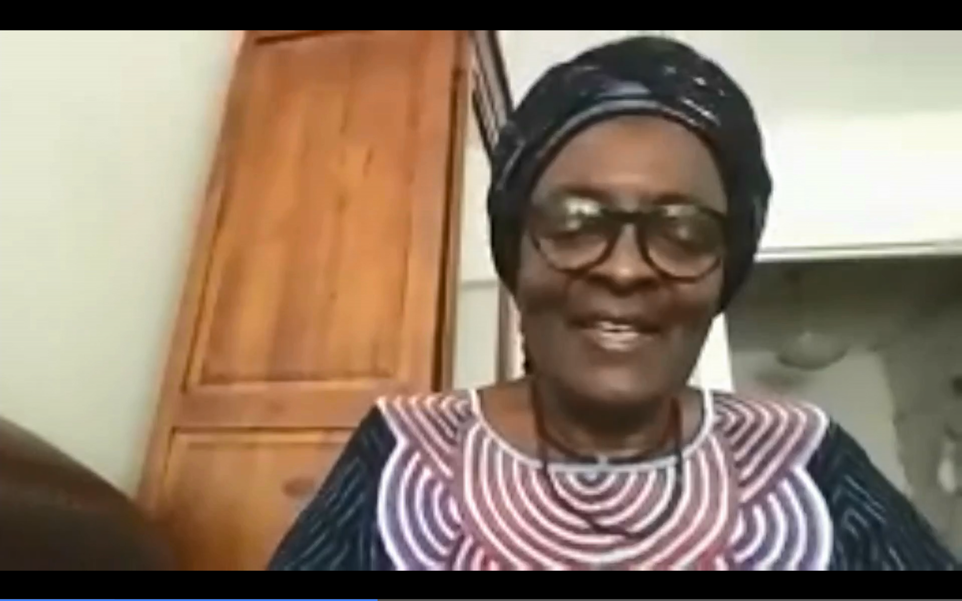
Ms. Aicha Bah Diallo shared her 30 years’ experience in front-line teaching and more than ten years’ experience as the Minister of Education and Assistant Director General of UNESCO, and discussed the vital importance of education. She believed that as the "youngest continent", education in Africa determines the future of the African continent and even the entire world. The COVID-19 pandemic is a huge test for Africa, and responding to emergencies is a major issue in educational leadership. In order to control the spread of the virus, African countries have taken measures to close schools and transition from traditional teaching to radio, television and even online teaching. This is a big challenge for teachers and students. At the same time, many factors such as the underdevelopment of the internet and the inability to afford computers have restricted the development of distance education. The unequal distribution of infrastructure has also exacerbated inequalities in education. For those in poor and rural areas, this transition may mean the interruption of education and other issues.
Aicha Bah Diallo believed that the impact of the pandemic on the stability of education in Africa and its other serious consequences have been ignored. She called on the leaders of higher institutions, the private sector, civil society organizations, governments, and international organizations to greater reflect on this issue. Only through collective and coordinated efforts could we provide educational assistance for youth in marginalized communities. This was an opportunity to rethink and redesign education in Africa, a chance to strive to create a vibrant, equal, and resilient education system that can withstand future crises and ensure that no one is left behind. Aicha Bah Diallo also expressed her sincere gratitude to the Jack Ma Foundation (JMF) and Chinese universities for their help in fighting the pandemic in Africa.
At 10 am Beijing time, an introduction to the Shenzhen International Graduate School (SIGS) was held. Executive Dean Gao Hong shared the history, college profile, personnel training and scientific research of SIGS to the GSS summer school students. In order to adapt to the new teaching model during the pandemic, Anthony , a teacher at the SIGS International Student & Scholars Center, introduced the concerns of international students such as the online registration process for new students.
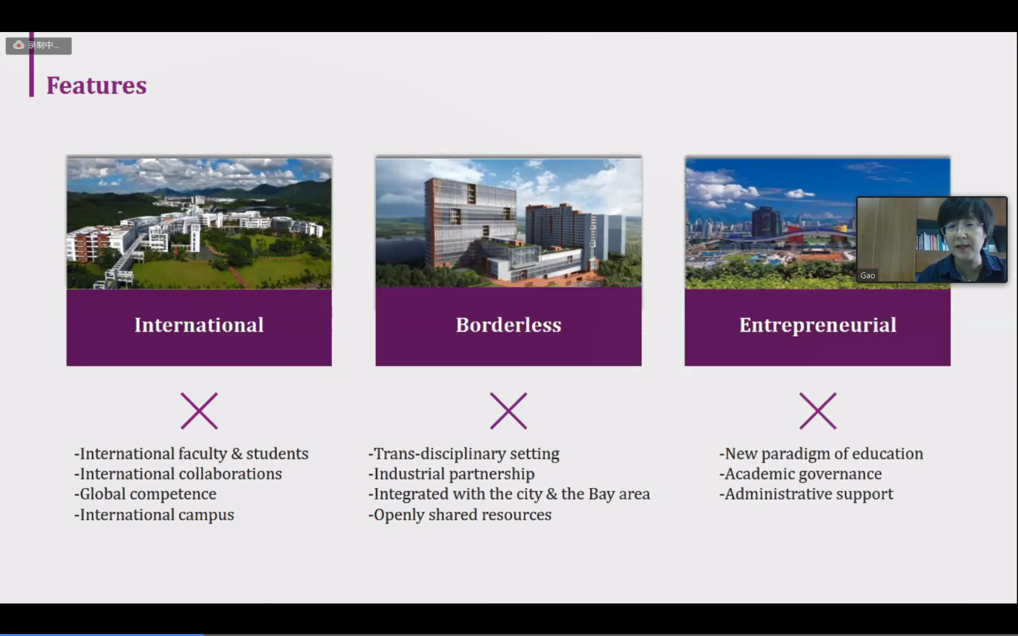
To follow, Dr. Yuan Bo from SIGS delivered a lecture entitled Data Science: A New Way of Thinking. Dr. Yuan Bo has been engaged in data science and massive open online courses (MOOC) research for many years. The MOOC data science course that he has taught has seen more than 150,000 students from all over the world attend. In his lecture, Dr. Yuan introduced practical examples and used simple language to introduce data that exists everywhere, inspiring students to understand the world from a new perspective. When facing opportunities and challenges, he emphasised that it is important to fully understand the relevant advantages. For college students, data analysis is one of the basic skills that can help improve the quality of research and application, and it can be applied to scientific research in many disciplines. In the less than one-hour course, Dr. Yuan not only introduced relevant knowledge about data science applications, including how to find key resources, and how to conduct research in this field, but also used his own experience to provide students with a series of suggestions to help them lay a solid foundation to conduct more effective future research.
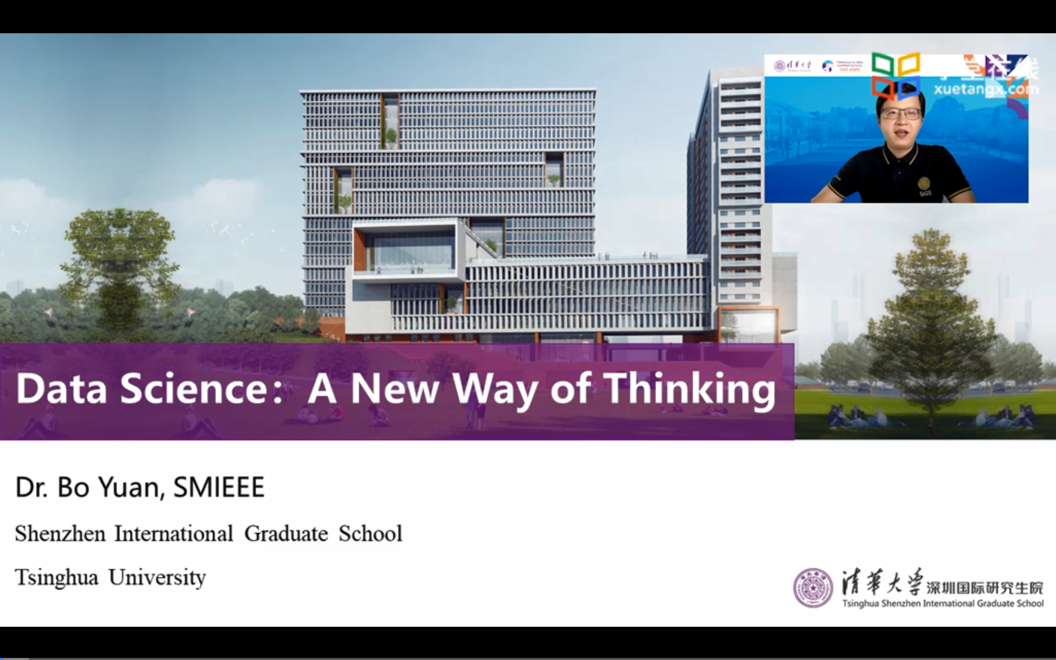
At 8pm Beijing time, Liu Bilu, Associate Professor at SIGS, introduced knowledge on Advanced Materials for Energy and Environment Applications. Professor Liu Bilu is engaged in the research of low-dimensional materials in chemistry and materials science, particularly focusing on the research of carbon nanostructures and two-dimensional materials. Starting from the history of materials science, he talked about key topics in materials science today: low-dimensional materials and nanomaterials. His course was vivid and detailed, which led students into the world of materials science. He took carbon as an example to show the magic of low-dimensional carbon materials, including its synthesis, characteristics and industrial applications, so that students from different subject backgrounds could understand the beauty and importance of materials, especially low-dimensional materials.
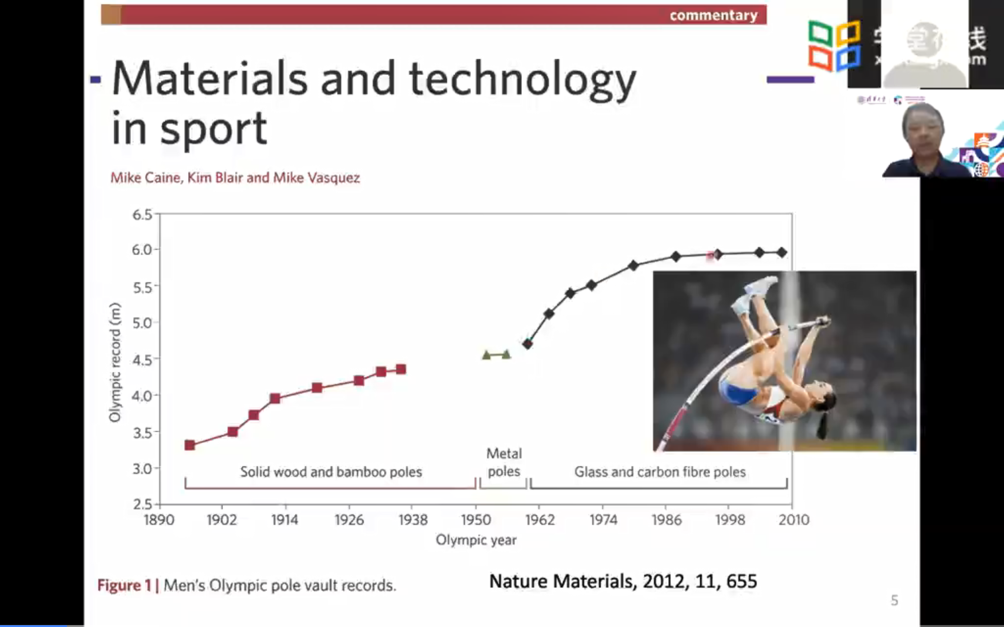
At 9pm Beijing time, a webinar with the theme of China-Africa Cooperation in Post-pandemic Era was held. It was presided over by Associate Professor Xie Zheping, Secretary General of CALDI. Guests at the meeting were: Lin Yi, Vice President of the Chinese People’s Association for Friendship with Foreign Countries and Executive Vice President of the African-Chinese People’s Friendship Association; Kuang Weilin, former Ambassador to the African Union and UN Economic Commission for Africa; Gu Zhiqiang, Director of Department of International Cooperation African Division (Foreign Aid Division) of the National Health Commission of the PRC; Shi Zhiqin, Professor at the School of Social Sciences of Tsinghua University and Executive Dean of the Academy of Belt and Road Initiative (ABRI) of Tsinghua University; Liu Huiqin, Executive Director of CALDI; Getachew Engida, Co-President of CALDI and former Deputy Director-General of UNESCO; and Shamil Jeppie, Professor at the Department of History of the University of Cape Town, South Africa.

Liu Huiqin introduced CALDI’s work on China-Africa education cooperation and experiences in fighting the pandemic and how it aims to "tell China's story in the epidemic and share China's experience." Professor Shi Zhiqin discussed how China-Africa cooperation is an extension of the Belt and Road Initiative, which has received response and support from African countries. Also, the Academy of Belt and Road Initiative (ABRI) has a global perspective based on China’s national conditions, and provides intellectual support. Mr. Engida emphasized the role of leadership in China-Africa cooperation and believed that COVID-19 has brought unprecedented challenges to universities, but that educational and cultural innovations have crossed the boundaries of student groups and geography and will play a greater role. Summarizing the meeting, Professor Shamil Jeppie pointed out the importance of the meeting and that all countries should unite to fight the pandemic, and build resilient communities with empathy.
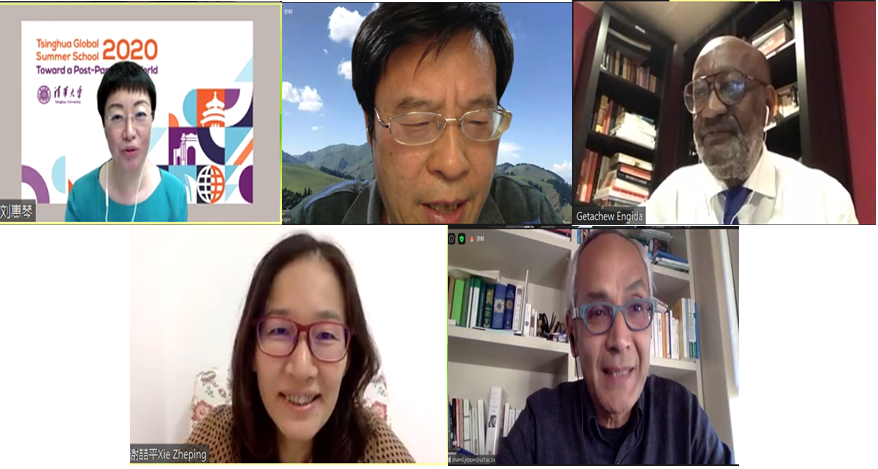
In the interactive Q&A session, students enthusiastically asked questions. Professor Shi Zhiqin shared the various options for international students to undertake regional research at Tsinghua University. Mr. Kuang Weilin analyzed the prospects for cooperation between China and Africa in the post-pandemic era, and pointed out that public health and infrastructure are important avenues for cooperation.
Reporter: Hu Suhan
Photos: Qiu Yinghan, Li Ruyi
Editors: Guo Lili, John Olbrich